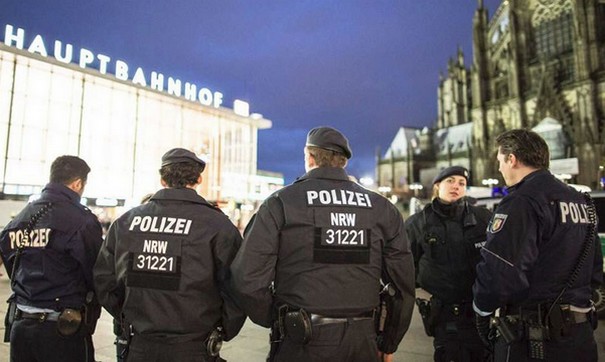The Cologne attacks that occurred during the New Year’s Eve have started a debate in Germany about its very generous refugee policy.
A young man from Algeria is the first person who has been arrested with regard to the cologne attacks – a string of sexual assaults that occurred during the New Year’s Eve in the city.
The Cologne attacks have started a debate in Germany about its capacity and ability to manage the refugee problem and integrate such a large number of Middle Easterners into their society.
German prosecutors released a statement on Monday that the unidentified asylum seeker was arrested over the weekend from within a refugee home in the town of Kerpen near Cologne.
The person is accused of trying to grope a woman. He also robbed her of her phone. This was made known to the associated press by the spokesman of the prosecutor’s office Ulrich Bremer.
Two more asylum seekers from Algeria aged 24 and 22 have also been arrested in Kerpen and the city of Aachen over the weekend. They have also been involved in the Cologne attacks and have been accused of robbery.
There are at least 21 people who are accused of taking part in the Cologne attacks on New Year’s Eve and committing crimes. There are eight of these men who are in custody at the moment.
It is three weeks since the Cologne attacks occurred. There have been official complaints from around 838 people. Out of these, 497 people are women who have claimed to have been sexually assaulted.
There are some victims of the Cologne attacks who have filed joint complaints. This means that the number of crimes officially reported comes down to 766 incidents, of which 381 are reported to have been sexual offences. Three rapes have also been reported during the Cologne attacks.
The nature of the Cologne attacks and the scale of the crimes, coupled with the official description by the police which almost unanimously describe the perpetrators as a large crowd of drunken young men of ‘Arab or north African’ origin, has opened a heated debate about Germany’s migrant problem and the government very lenient approach towards asylum seekers.
Germany is the biggest country in Europe in terms of population. It also has the largest economy in continent. Unfortunately, Germany has been the destination of most of the refugees from Syria and Iraq as well as Afghanistan and other countries. In fact, the current refugee influx in Germany is the biggest since World War II.
Reportedly, more than a million refugees already arrived in Germany during the previous year most of them from Iraq, Syria and Afghanistan.
On Monday the ruling conservative party, the Christian Democratic Union decided that Algeria, Morocco and Tunisia should be designated as safe places. It will effectively minimize the chances of citizens from these countries to achieve asylum in Germany. In fact, the chances for migrants coming from these countries will be zero.
This step has been taken in order to minimize the number of refugees coming to Germany from these countries. It will also render deportations easy for the government.

